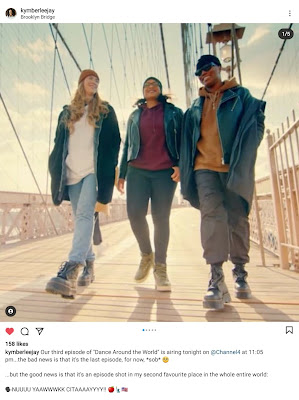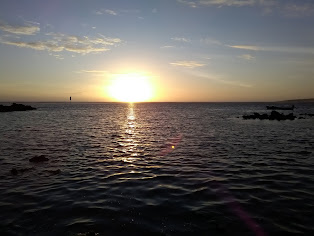Dance Around the World: Hip hop dance culture and origins - Dance Saturday
Hello everybody and welcome back to another blog post,
A couple months ago, during one of my online dance lessons, I watched a dance documentary on the origins of hip hop. It was called Dance Around the World. It starred the famous British street dancers Kymberlee Jay, Maren Ellermann, and Suzette Brisset. It was super interesting and, as a street dancer myself, I found out a lot about hip hop that I didn't know before. I learnt that hip hop was created for dancers to stand up for themselves on the streets of New York, I found out how hard it was for hip hop dancers to make money on the streets, and I learnt a lot about other forms of hip hop like breaking and litefeet. There were unfortunately not any video clips of the documentary on YouTube but I'll link the full Channel 4 version below for you to watch. In the meantime, here are some questions I answered on it. Enjoy reading!
- What are the origins of the dance culture you have explored?
Hip hop dancing originated from the Bronx of New York. Originally, hip hop was only really performed by poor African Americans and Latinas, but the style has since then upheld a more international influence.
• What impact does the location, societal and economical factors have on the development of the technique?
Most traditional hip hop dancers learnt their technique from the streets and not necessarily from formal classes. This was because most of these hip hop dancers came from poor family backgrounds and liked hip hop because it could be practiced in any available space. Hip hop and break dancing was also seen as a way to stand your ground in some of the violent places on the streets and some dancers even used hip hop as a way to make money. Therefore, the movements became quite strong and powerful because hip hop dance was a way for people to hustle on the streets and fight back against levels of oppression.
• What practices or practitioners influence the technique?
Alien Ness was a part of the popular B-boy dance group the Mighty Zulu Kings that was well known in the early 1970s. They formulated much of the technique that went in breaking. Alien Ness reflected on the aggression, the roughness, and the desperation that was all around him, through his break dancing. Break dancing then became known as a style that was performed to make your presence known in your neighbourhood and to stand up against violence in a non-violent way. This is why the movements in break dancing are powerful so that they make an impact on the people around them and challenge the rivals that the dancers are going up against.
Nowadays, hip hop is more a part of the commercial scene. More hip hop dancers want to sell something that doesn’t reflect who they are as an artist and the style has become less about the plight and honour, and more about what other people and companies want from the dancers. It’s not as authentic as it used to be because dancers want to make more money for themselves, so the struggle and desperation isn’t as reflected through the movements as they once were.
• Is the culture impacted by global events, fashion trends and/or an artistic epoch?
The hip hop culture is impacted by the modern dance business. Before, dancers who performed hip hop were purely about making a name for themselves and improving their status within their community. Now, more dancers want to make money from their passion, and this can lead them to losing the real reason why they started dancing. The hip hop scene is struggling to balance the new view of hip hop and the authenticity.
(Tap image for more info!)
What do you know about hip hop dance? Do you like this style of dance? Let me know in the comments below and I'll be sure to reply to them. I ♡ hearing from you!
Tap one of the reaction boxes below to let me know what you thought of this post. It would really help me to make some improvements in the future!
Be sure to follow and subscribe so that you don't miss any more of my brilliant posts and share this article with a friend who might enjoy it too!
See you next time,
Bye,
XOX, Juliette



Comments
Post a Comment
Thanks for leaving your comments! I really enjoy reading your positive and constructive messages. They really make my day! 💜